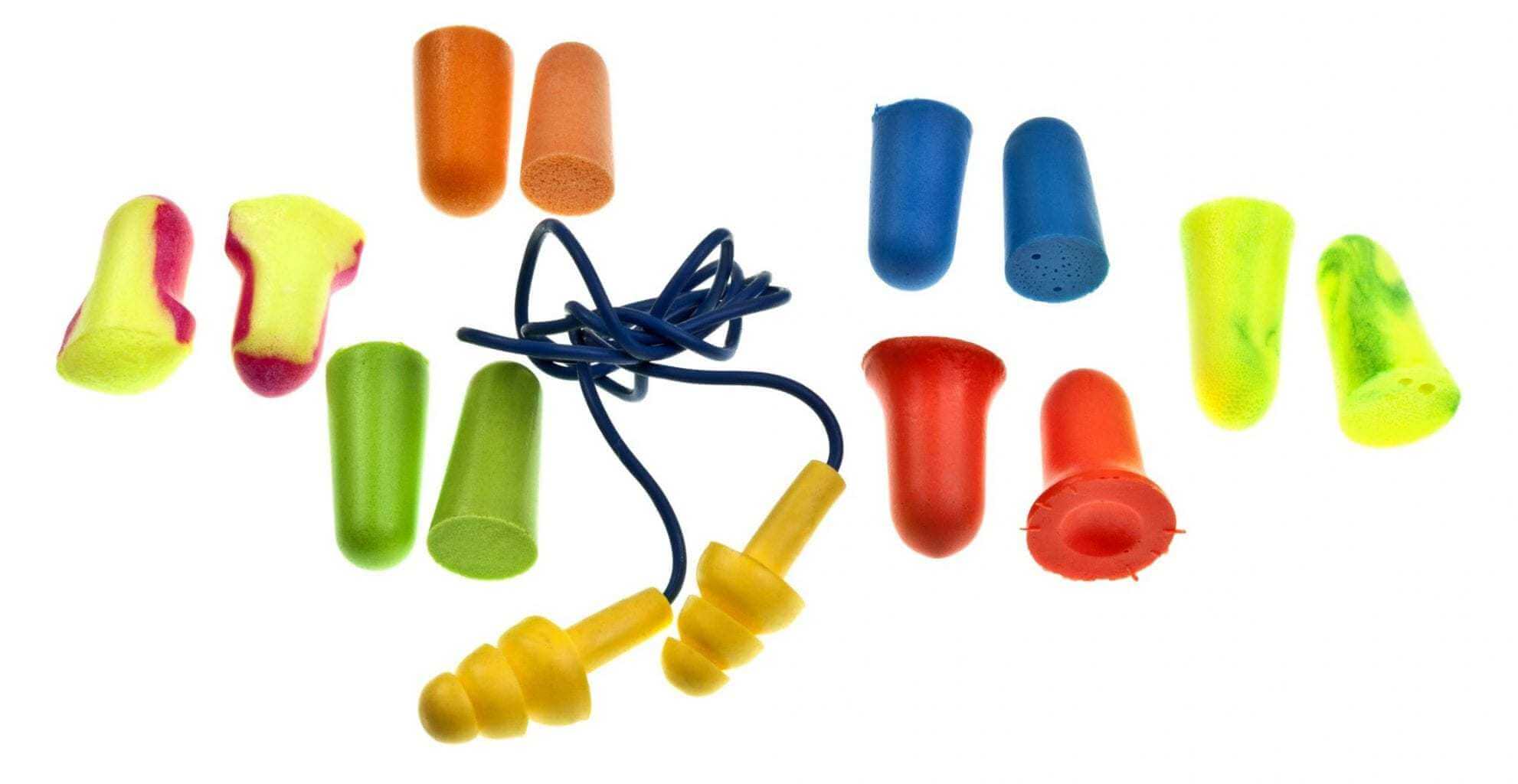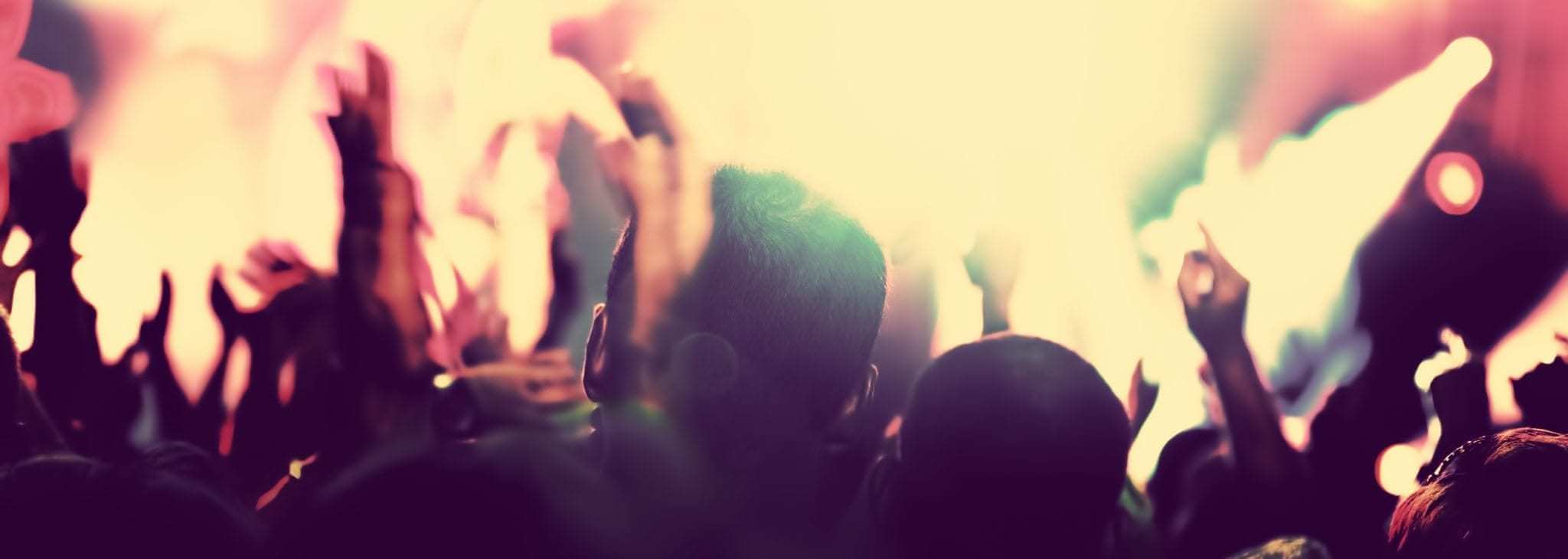Brian Johnson, lead singer of ACDC since 1980, recently released a statement, “after a series of examinations by leading physicians in the field of hearing loss, I was advised that if I continue to perform at large venues, I risked total deafness.” He isn’t the first musician to suffer hearing damage from repeated exposure to loud music and a lack of hearing protection. Some concert-goers experience temporary hearing impairment and some even suffer permanent hearing damage and/or tinnitus after just one loud concert. It’s a scientific fact that extended periods of loud noise can cause hearing damage. So before you attend the next summer concert, you should remember these three things:
- Loud music damages your ears and hearing.
- If you damage your hearing, you won’t hear the music you love as well as you do today.
- There are many shapes, sizes, and colors of hearing protection that can protect your hearing and still allow you to enjoy the concert.
Pearl Jam recently started to provide earplugs at their concert because they understand the risk to concert attendees. The band’s bassist, Jeff Ament, made this statement, “Don’t be careless and lazy at loud rock shows or cranking tunes through an old Walkman like I was doing thirty years ago, (but boy did it all sound good). Wear hearing protection or you’ll end up with a 1.5k ring in both ears every night when you go to bed or worse when you are trying to enjoy the serene quiet of an empty desert or forest, again like me.”
How does listening to loud music damage the ear?
The cochlea is the auditory component of the ear; it receives sound in the form of vibrations. Inside the cochlea is the sensory organ of the ear; the Organ of Corti. This sensory organ is coated with little hair-like structures called stereocilia. These tiny, fragile structures move in response to the vibration and then send nerve pulses to the brain so that we hear sounds. Loud music damages and destroys these little hairs. The damaged hairs will not heal or grow back; they are gone. The destruction of the stereocilia leads to hearing loss and also may create or worsen tinnitus (ringing in the ears).
There is new research that shows that the synapse on the nerve that transmits the pulses to the brain may be damaged from loud noise; causing hearing loss and tinnitus. The research provides evidence that one loud concert or sound can immediately damage this synapse and create permanent or conductive (temporary) hearing loss. People who experience loud sounds, like a gunshot or intensely loud feedback at a concert, report that their ears start ringing at that moment and it may never stop.
The level of sound and the length of exposure relationship
Two factors determine the risk of hearing damage; decibels and length of exposure. Decibels are the units of pressure used to measure sound. A normal conversation measures between 40 and 60 decibels and is safe for any amount of time. Listening to sound over 84 decibels for four hours a day or eight hours in one day can cause hearing problems. The recommended maximum length of exposure to noise over 100 decibels is less than 15 minutes. How loud is a typical rock concert? Depending on the distance from the speaker, the decibel levels range from 105-120. Decibel levels at 120 can permanently damage and destroy the stereocilia in just a few minutes. If you don’t take steps to protect your ears, you risk permanent damage to your hearing.
Hearing protection at loud concerts
- Wearing ear plugs is the best way to protect your ears. If you attend concerts regularly, you may want to invest in custom ear plugs. These are the ones musicians use, and do not affect the sound quality in any way. Do not use napkins or paper as earplugs; they will not protect your ears from the high decibels.
- Stay a safer distance from the speakers; at least 25 ft.
- Take breaks from the area where the music is the loudest. The longer the exposure to the loud music, the greater the risk. Go to the concessions area or to the bathroom or any area where the music is quieter to rest your ears. This will decrease the chance of conductive or permanent hearing damage.

What to do if you think you have hearing damage after attending a concert
Most concert-goers will experience some short term effects to their hearing without ear protection. If symptoms such as ringing (tinnitus), pain, diminished hearing, or any other hearing issue persists for 2-3 days after the concert, you should contact an audiologist. If you do not have a baseline hearing test from the past five years, you should get one from an audiologist. A record of how your hearing is changing over time can help you determine if you are using the best hearing protection available. Then you can enjoy your music and concerts without any worry!
Please also be mindful of your ear protection during the summer months at Major League baseball games, air shows, car races, and fireworks displays. These events can create sound levels up to 95 to 140 dB which can certainly cause hearing loss or tinnitus.
Finally, if you’re wondering how to find out if you have tinnitus or any other hearing-related issue, please contact Sound Relief Hearing Center of Denver, Colorado. We provide tinnitus treatment, hearing tests, invisible hearing aids, and more. To learn more about us, please browse our website, visit our Youtube channel, or give us a call at 720-344-7600. You can also schedule an appointment online to meet with one of our tinnitus specialists or audiologists. We look forward to hearing from you!

